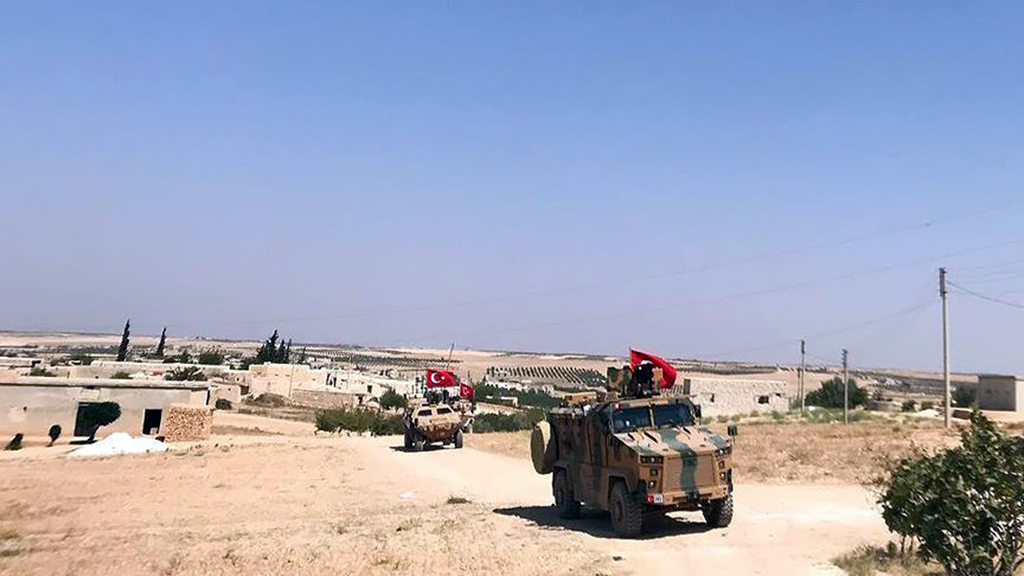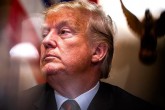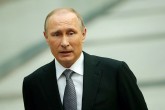Since the phone call between U.S. President Donald Trump and President Recep Tayyip Erdoğan, there has been a debate about the Turkish viewpoint and position about the U.S. withdrawal from Syria. Some in the U.S. called the decision a “shock” to Turkey, while others argued that it was President Erdoğan who convinced President Trump to pull troops out of Syria.
In the readout following the latest phone call between the two leaders, this puzzle is more or less clarified. In parallel with earlier statements, President Erdoğan welcomed the U.S. decision to pull its troops out of Syria and offered all kinds of support. There has also been constant emphasis on coordination following this decision.
What impacts Turkey’s position in regards to the U.S. presence in Syria has been the U.S. partnership with the People’s Protection Units (YPG) east of the Euphrates River. Although U.S. officials repeatedly asserted that relations with the YPG were temporary and tactical, two issues have determined Turkey’s perception in regards to the partnership between its NATO ally and a terrorist organization.
First, the announcement concerning the U.S. building observation posts along the Turkish-Syrian border pointed to a similar debate that started in Washington in January 2018 when the Pentagon announced that it was preparing to form a border protection force in Syria. Both pronouncements generated the perception that the U.S. is willing to continue the partnership even after the end of the fight against Daesh at the territorial level. This would lead to further consolidation by the YPG in the territories that it controlled.
Second, at least in the statements of U.S. officials, there was no exit strategy to end the relationship with this group. There were too many unanswered questions on the future of these relations. Some in Washington even aimed to use the group against Iran, which meant the group’s further empowerment. On top of this, delays in the Manbij road map created a degree of skepticism among some in Turkey. When it was signed, many observers regarded the road map a potential model to implement other areas as well.
Under these circumstances, Turkey started to observe increasing activity in border areas, especially the digging of trenches. When President Trump announced his decision to pull U.S. troops out of Syria, it was considered in Turkey as the best way to end the relationship between the YPG and the U.S.
Turkey wanted the safe zone to help eradicate terror groups along its border areas; it will also be an opportunity to start reconstruction efforts so that refugees in Turkey can return to some towns, which would contribute to stopping the flow of refugees to Turkey or other European countries and becoming the victims of human smugglers or dangerous journeys to Europe.
As a country that has hosted more than 3.5 million refugees for the last seven years, Turkey has formed a relationship of trust with displaced Syrian people. Even the internally displaced persons (IDPs) will be able to use this area to restart their lives. Any suggestion concerning forming a safe zone protected by the regime sounds logically problematic and practically impossible. The rapid reconstruction in Jarablus after the end of Operation Euphrates Shield set an important example for the significance of rehabilitation and reconstruction in preventing a resurgence of terrorist groups.
Thus, if the area is reconstructed and if life becomes normal, it will help prevent the re-emergence of Daesh. Finally, it can also be a major new opening for Turkish-U.S. relations. If Turkey and the U.S. can coordinate the functioning of safe zones, it would likely provide an opportunity for Turkey and the U.S. to work closely in a theater that has become a major source of policy divergence in the last few years.
Implementing safe zones will necessitate a clarification in terms of the timetable and conditions of the U.S. withdrawal. Previous studies on safe zones demonstrate that they become more efficient when there are clear objectives and coordination among countries involved in this process. Thus, negotiations that will take place between high-level officials in the next few weeks will be extremely significant, impacting not just Turkish-U.S. relations but also regional stability and international security.
[Daily Sabah, 18 January 2019]
In this article
- Opinion
- CENTCOM
- Civil War
- DAESH
- Daily Sabah
- Donald Trump
- East of the Euphrates
- Europe
- Fight against DAESH
- Fight Against Terror
- Islamic Republic of Iran
- Kurdistan Workers' Party Terrorist Organization (PKK)
- Middle East
- NATO
- NATO Ally
- Operation Euphrates Shield
- Peace Corridor
- People's Protection Units (YPG)
- PKK - YPG - SDF - PYD - YPJ - SDG - HBDH - HPG - KCK - PJAK - TAK - YBŞ
- Recep Tayyip Erdoğan
- Safe Zone
- Syria
- Syrian Civil War
- Syrian Conflict
- Syrian Crisis
- Syrian Democratic Forces (SDF)
- Syrian National Army (SNA)
- Syrian National Coalition
- Syrian Opposition
- Syrian Refugees
- Terrorism
- Trump’s Syria Withdrawal
- Turkish Foreign Policy
- Turkish-American Relations
- Türkiye-US Relations
- Türkiye-US Security Relations
- Türkiye's Foreign Policy
- Türkiye's Operation Peace Spring
- Türkiye’s Operation Olive Branch
- United States (US)
- US President
- US Withdrawal from Syria
- US-PKK/PYD/YPG/SDF Relations
- US-Terror Relations
- Vladimir Putin



